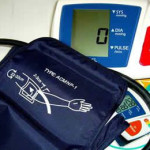Do People with Low Blood Pressure Feel Cold?
Like hypertension (high blood pressure), hypotension (low blood pressure) also can be a life-threatening condition when it gets worse to an advanced stage. The levels of blood pressure (BP) are commonly considered normal when they are around 115 /75 to 120 /80 mm Hg. When they drop down lower than 90 mm Hg for top number (systolic pressure) or 60 mm Hg for bottom number (diastolic pressure) is considered too low and generally can be categorized into hypotension – according to NIH (the National Institutes of Health). But unlike hypertension, hypotension is more often to come with some symptoms. Is cold is one of the common signs of this problem?
Cold is a symptom of many health problems. In many cases, it points to mild health problems, but sometime it may signal a serious health condition.
But overall, cold can be a respond from your body when there is something wrong. According to Mayo Clinic, it is one of signs of low blood pressure.
However again, it is a vague symptom. Having it doesn’t mean you definitely experience hypotension. The only one to get to know clearly whether or not your BP goes too low is by checking it.
 Checking your BP is painless – unlike the tests for blood cholesterol and blood sugar because you don’t have to take a blood test. However, sometime doctor may ask an individual who is experiencing symptoms of hypotension to take some blood tests and other procedures in order to find the underlying cause.
Checking your BP is painless – unlike the tests for blood cholesterol and blood sugar because you don’t have to take a blood test. However, sometime doctor may ask an individual who is experiencing symptoms of hypotension to take some blood tests and other procedures in order to find the underlying cause.
Blood tests can help provide information other parameters such as the high number of blood sugar ‘hyperglycemia’ or low blood sugar ‘hypoglycemia, and a low number of cells of the blood (especially red blood cells) – all of which can have contribution to cause hypotension.
While sometime low blood pressure can be followed with a cold, the ambient temperature also has an effect on your BP. In fact, your BP is typically relatively lower in the summer than in the winter.
Experts think that blood vessels tend to get narrower when the body is exposed with low temperature. And the narrowed blood pressure can increase the force of the blood against the artery and vein walls – then your BP will rise.
Furthermore, the decreased physical activity and greater chance of obesity in the winter also have an effect.
A sudden change of weather that changes the ambient temperature drastically at short time can affect blood pressure of some people (especially for elderly people – 65 years-old or older). Experts theorize that it is a respond of the body in the same way of reacting to a cold.
Cold is not the single symptom of hypotension.
Sometime, hypotension can point to an underlying health problem, particularly when the blood pressure drops suddenly without known reason and followed some of these symptoms:



